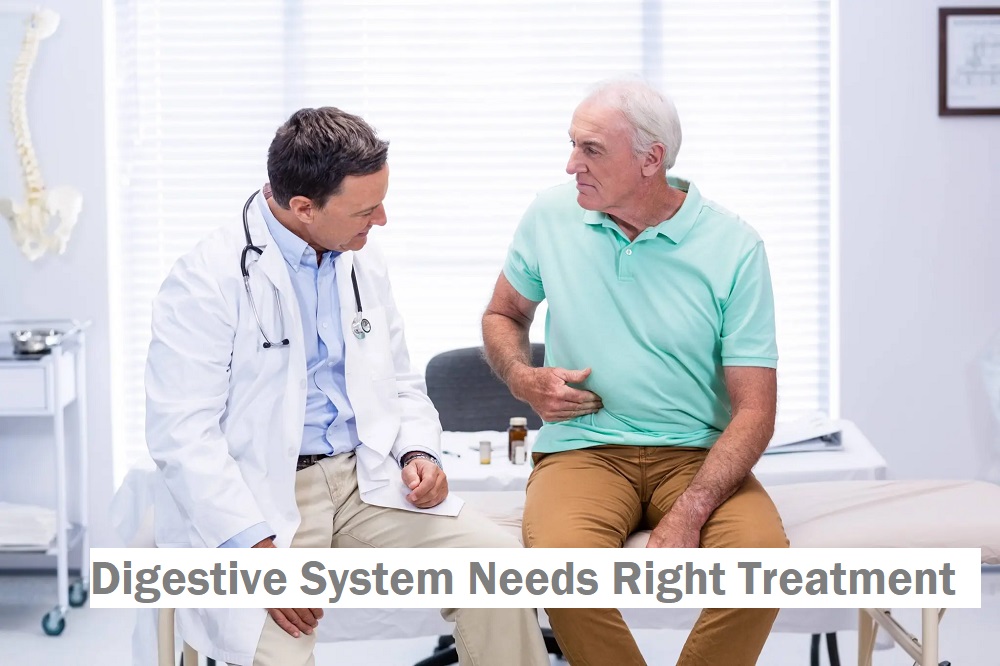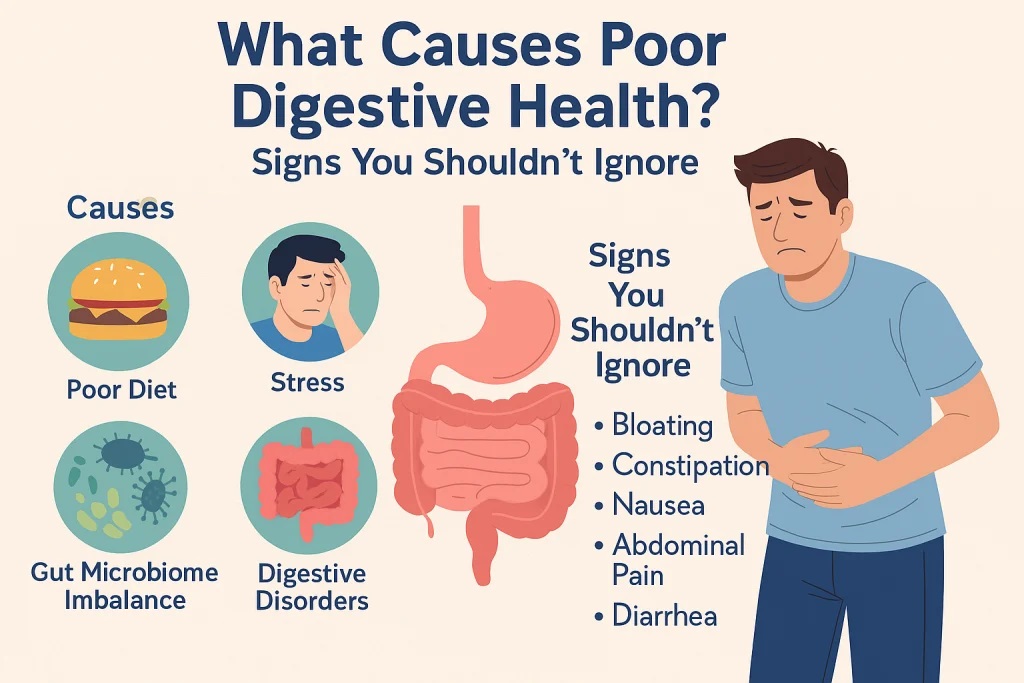Gastroenterological issues affect millions of Americans each year, ranging from mild digestive complaints to complex chronic conditions. Many patients wonder about their healthcare options and who can provide treatment for these concerns.
Nurse Practitioners can indeed treat various gastroenterological conditions, operating within their scope of practice to diagnose, treat, and manage many common digestive disorders. They receive specialized training that enables them to evaluate symptoms, order appropriate diagnostic tests, prescribe medications, and develop treatment plans for patients with gastrointestinal issues.
For residents of New York City seeking gastroenterological care, LocalMD offers accessible healthcare services with qualified practitioners. Their team includes nurse practitioners who work collaboratively with physicians to provide comprehensive care for digestive health concerns, ensuring patients receive timely and appropriate treatment for their specific needs.
Role of Nurse Practitioners in Gastroenterology
Nurse Practitioners (NPs) play a vital role in gastroenterology care, offering specialized expertise in diagnosing and treating gastrointestinal conditions. They serve as essential members of the healthcare team, bridging care gaps and increasing access to GI services.
Scope of Practice for Gastroenterology Nurse Practitioners
Gastroenterology NPs can perform comprehensive patient assessments, order diagnostic tests, and develop treatment plans for various gastrointestinal conditions. They often manage common GI disorders including GERD, IBS, inflammatory bowel disease, and hepatitis.
In many states, GI NPs have prescriptive authority and can recommend medications, lifestyle modifications, and dietary changes. They also perform procedures such as feeding tube management and assist with endoscopic procedures.
Patient education represents a significant component of their practice, helping individuals understand their conditions and treatment options. Gastroenterology NPs typically work in hospitals, specialty clinics, and private practices like Manhattan Gastroenterology, where they enhance patient care through their specialized knowledge.
Differences Between Nurse Practitioners and Gastroenterologists
Gastroenterologists are physicians who complete medical school followed by specialized training in internal medicine and gastroenterology, typically requiring 5-6 years after medical school. NPs possess master’s or doctoral degrees in nursing with specialized GI training.
The primary difference lies in their scope of practice. Gastroenterologists perform advanced procedures like colonoscopies, endoscopies, and complex interventions independently. GI NPs generally cannot perform these procedures without physician supervision.
Gastroenterologists typically handle more complex cases, while NPs often manage routine care and follow-up appointments. This distinction creates a complementary relationship that benefits patients.
Key Differences:
- Education: 11+ years for gastroenterologists vs. 6-8 years for NPs
- Procedures: More limitations for NPs on invasive procedures
- Focus: NPs often emphasize holistic care and patient education
Collaborative Care and Multidisciplinary Teams
Gastroenterology NPs function optimally within collaborative care models, working alongside physicians, dietitians, and other specialists. This team-based approach ensures comprehensive patient management through shared expertise and perspectives.
In these arrangements, NPs often serve as care coordinators, maintaining continuity between visits and facilitating communication among team members. They frequently handle initial assessments, routine follow-ups, and ongoing management of stable patients.
Research demonstrates that collaborative care models improve patient outcomes and satisfaction. A study in the Journal of Clinical Gastroenterology found that teams incorporating GI NPs reduced wait times by 23% while maintaining quality metrics.
Many gastroenterology practices, including those in specialized centers, implement protocols that clearly define roles and responsibilities. This structured collaboration maximizes efficiency while ensuring patients receive appropriate care at every level of complexity.
Diagnosing and Managing Digestive Conditions
Nurse practitioners play a vital role in the diagnosis and management of various digestive conditions. They utilize evidence-based approaches to assess symptoms, order appropriate tests, and develop comprehensive treatment strategies for patients with gastrointestinal issues.
Common Gastrointestinal Disorders Treated by NPs
Nurse practitioners routinely manage irritable bowel syndrome (IBS), which affects 10-15% of the population. They can identify symptom patterns and differentiate between IBS subtypes through careful patient history and diagnostic criteria.
Gastroesophageal reflux disease (GERD) represents another common condition where NPs excel in management. They assess severity, recommend lifestyle modifications, and prescribe appropriate acid-suppressing medications.
Inflammatory bowel diseases, including Crohn’s disease and ulcerative colitis, require ongoing monitoring that NPs provide through regular follow-up appointments. They track disease activity and medication effectiveness.
Functional digestive disorders like functional dyspepsia and chronic constipation benefit from the holistic approach NPs bring to patient care. Treatment often involves dietary changes, lifestyle modifications, and targeted pharmacotherapy.
Developing and Implementing Treatment Plans
NPs create individualized treatment plans that address the specific needs of each patient with digestive concerns. They consider factors such as severity, comorbidities, and patient preferences.
Medication management constitutes a core competency, with NPs prescribing and adjusting medications for conditions ranging from acid reflux to inflammatory bowel disease. They monitor for efficacy and adverse effects.
Key medications managed by NPs include:
- Proton pump inhibitors
- H2 receptor antagonists
- Antispasmodics
- Anti-inflammatory agents
- Laxatives and antidiarrheals
Dietary and lifestyle interventions form an essential component of treatment plans. NPs provide specific guidance on elimination diets, FODMAP approaches, and fiber modifications based on the condition.
Patient education represents a particular strength of nurse practitioners in gastroenterology settings. They ensure patients understand their conditions and treatment regimens.
Endoscopic Procedures and Advanced Interventions
While NPs typically don’t perform endoscopic procedures independently, they play crucial roles in pre-procedure preparation and post-procedure care. They ensure patients understand the purpose and risks of procedures like colonoscopy and upper endoscopy.
NPs coordinate care with gastroenterologists when patients require advanced interventions. They help identify candidates for specialized procedures and facilitate appropriate referrals.
Post-procedure management falls within the NP scope of practice. They monitor for complications, interpret results, and adjust treatment plans accordingly.
In outpatient settings, NPs provide follow-up care after endoscopic procedures. They review findings with patients and implement recommended treatments based on procedure results.
Education, Certification, and Professional Development
Nurse Practitioners specializing in gastroenterology require extensive education, specific certifications, and ongoing professional development to provide quality care for patients with digestive disorders.
Required Education and Credentials for Gastroenterology NPs
The journey to becoming a gastroenterology Nurse Practitioner begins with a Bachelor of Science in Nursing (BSN). This foundational degree typically takes four years to complete and includes clinical rotations in various healthcare settings.
After obtaining a BSN, nurses must pursue a Master of Science in Nursing (MSN) or Doctor of Nursing Practice (DNP) with a focus on adult health or acute care. These advanced degrees provide the specialized knowledge necessary for diagnosing and treating complex gastroenterological conditions.
Many programs offer specialized tracks or electives in gastroenterology. Clinical hours during graduate education often include rotations in gastroenterology departments or clinics where students gain hands-on experience with procedures like endoscopies and colonoscopies.
Certification and Licensure Processes
All Nurse Practitioners must obtain APRN (Advanced Practice Registered Nurse) licensure through their state board of nursing. This requires passing a national certification exam through organizations like the American Association of Nurse Practitioners (AANP).
While there is no specific gastroenterology certification for NPs currently, many pursue board certification as Adult-Gerontology Acute Care NPs or Family NPs. These certifications establish a strong foundation for specialized practice.
Some NPs obtain additional credentials through the Society of Gastroenterology Nurses and Associates, which offers specialized certifications for nurses working in gastroenterology settings. These certifications demonstrate expertise and commitment to the specialty.
Continuing Education and Specialized Training
Gastroenterology NPs must complete continuing education requirements to maintain their licensure and certifications. Most states require 50-100 continuing education hours every 1-2 years.
Many practitioners pursue fellowship programs in gastroenterology, which provide intensive training in advanced procedures and management of complex digestive disorders. These programs typically last 1-2 years and include both clinical practice and research components.
Professional organizations like the American College of Gastroenterology offer specialized courses and conferences focused on the latest treatments and technologies. Some practice settings, such as specialized gastroenterology clinics, provide on-the-job training for procedures specific to the field.
Online continuing education platforms also offer courses targeting gastroenterology topics, allowing NPs to stay current with evidence-based practices while balancing their clinical responsibilities.
Patient Outcomes and the Future of Gastroenterology Nurse Practitioners
Nurse practitioners specializing in gastroenterology are making significant impacts on patient care while creating promising career pathways. Their integration into specialty practices continues to evolve with measurable benefits for healthcare delivery and patient outcomes.
Impact on Patient Care and Outcomes
Gastroenterology nurse practitioners (GNPs) have demonstrated substantial positive effects on patient outcomes through comprehensive care approaches. Studies show patients treated by GNPs experience high satisfaction rates, often citing improved communication and education about their conditions.
In outpatient settings, GNPs excel at managing chronic conditions like inflammatory bowel disease and GERD with follow-up rates comparable to physician specialists. Their focus on preventive care has contributed to earlier detection of gastrointestinal cancers through increased screening compliance.
Patient advocacy represents a core strength of GNPs, with many practices reporting reduced wait times and increased appointment availability after incorporating nurse practitioners. At specialty practices like those in New York City, GNPs often serve as primary points of contact, enhancing continuity of care.
The holistic approach employed by GNPs addresses not just physical symptoms but overall well-being, resulting in better management of psychosocial factors affecting gastrointestinal health.
Evolving Trends and Job Market
The demand for gastroenterology nurse practitioners has grown by approximately 30% over the past five years, reflecting their increasing value in specialty care. Average salaries now range from $110,000 to $140,000 annually, depending on location and experience.
Professional growth pathways have expanded, with many GNPs pursuing specialized certifications in endoscopy assistance, hepatology, or nutrition management. These additional qualifications enhance both clinical capabilities and earning potential.
Rural and underserved areas offer particularly promising opportunities, with some regions offering loan forgiveness and recruitment bonuses to attract qualified GNPs. Telehealth adoption has further expanded the reach of gastroenterology nurse practitioners.
Career longevity appears strong, with retention rates in gastroenterology specialty practice groups exceeding those of general nurse practitioner positions by 18%. This suggests high job satisfaction and sustainable career paths.
Academic medical centers increasingly involve GNPs in clinical research, adding another dimension to professional development beyond direct patient care.
Frequently Asked Questions
Nurse practitioners specializing in gastroenterology face specific educational requirements, career opportunities, and practice limitations that prospective professionals should understand. Patients seeking gastroenterology care should also be aware of where and how these specialized NPs can assist them.
What qualifications are required for a nurse practitioner to specialize in gastroenterology?
Nurse practitioners must hold a Master’s or Doctoral degree in nursing, maintain national board certification, and complete specialized training in gastroenterology through continuing education or fellowship programs.
What advanced education or fellowship programs are available for nurse practitioners wishing to enter the field of gastroenterology?
Several universities offer gastroenterology-focused NP fellowships lasting 6-12 months, while organizations like the Society of Gastroenterology Nurses and Associates provide specialized certification programs.
Where can patients find gastroenterology nurse practitioners for consultations?
Patients can find gastroenterology NPs at specialized gastroenterology practices, hospital GI departments, digestive health centers, and integrated medical clinics like LocalMD in NYC which offers comprehensive digestive health services.
What are the typical job responsibilities for a nurse practitioner working in a gastroenterology clinic?
Gastroenterology NPs typically evaluate patients with digestive complaints, order and interpret diagnostic tests, develop treatment plans, provide patient education, and manage chronic GI conditions.
What is the average salary expectation for a nurse practitioner in the gastroenterology specialty?
Gastroenterology nurse practitioners earn approximately $115,000-$130,000 annually, with variations based on location, experience, and practice setting.
Are nurse practitioners authorized to conduct procedures like endoscopies within their gastroenterology practice?
NP procedure authorization varies by state, with some allowing supervised endoscopies after specialized training while others restrict such procedures to physicians only.






